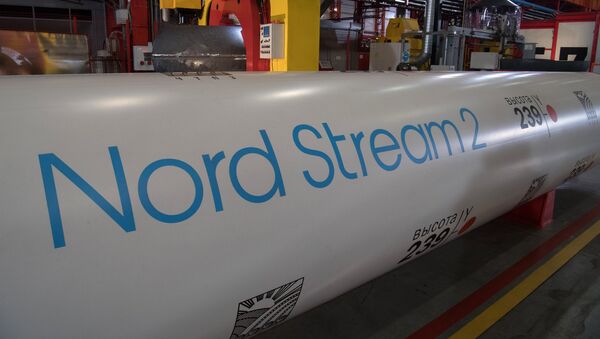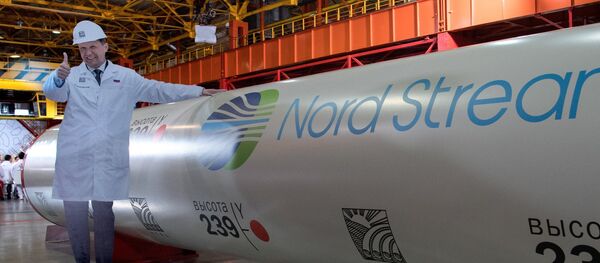WARSAW (Sputnik) — The Nord Stream 2 gas pipeline is designed to deliver an estimated 55 billion cubic meters of Russian natural gas a year to Germany across the Baltic Sea, bypassing Ukraine. In 2016, prime ministers of Czech Republic, Estonia, Hungary, Latvia, Poland, Slovakia and Lithuanian president signed a letter addressed to European Commission President Jean-Claude Juncker, objecting to construction of Nord Stream 2 pipeline, since the project could allegedly result in geopolitical destabilization.
"The Baltic Pipe project alongside Nord Stream 2 would be the core of the intensive negotiations between [Polish Prime Minister] Beata Szydlo and Danish Prime Minister Lars Lokke Rasmussen," Szymanski told the Polish Press Agency, adding that the two states expect "definitely a more clear position" concerning the projects which "contradicted the EU actions, plans and statements," like the Nord Stream 2.
"Thus, we could really achieve gas supply diversification, in particular related to non-Russian gas supplies to our market, which is still heavily dependent on this supplier," Szymanski said.
The project’s implementation requires that Denmark, along with Russia, Finland, Sweden, Denmark and Germany grant permits for the pipeline construction. The launch of Nord Stream 2, a joint venture of Russia’s Gazprom with France's Engie, Austria’s OMV AG, Royal Dutch Shell, Germany's Uniper and Wintershall, is planned for 2018.


